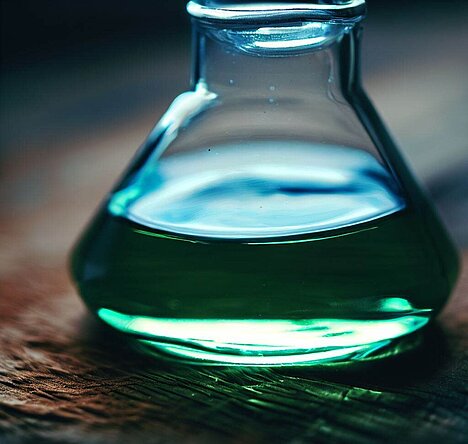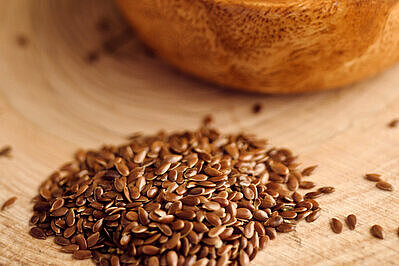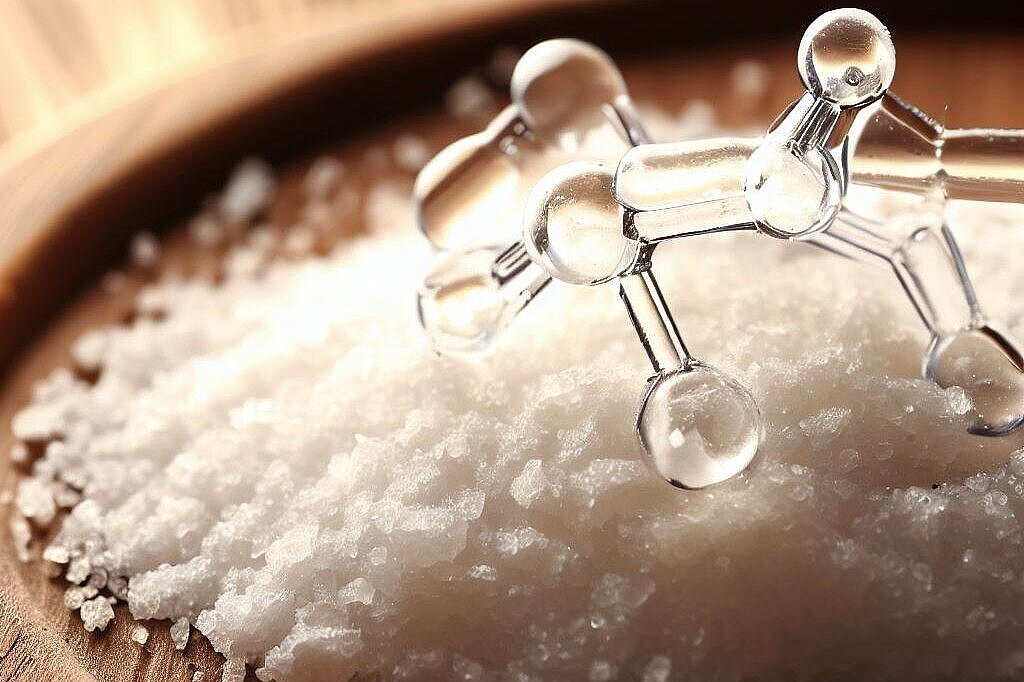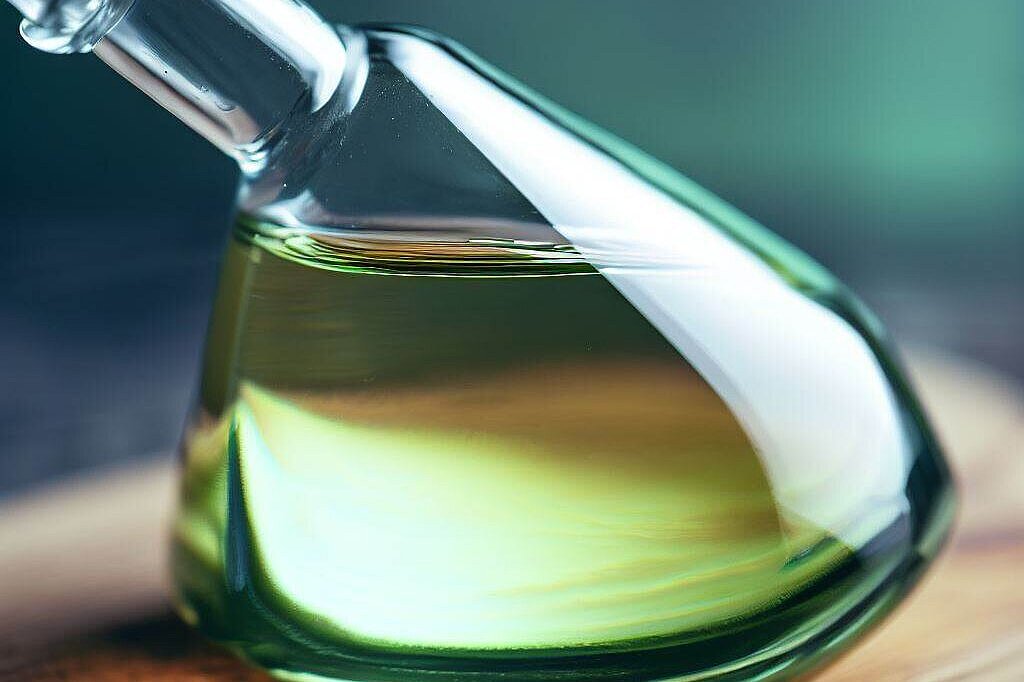Essential fatty acids

Fatty acids are important components of a dog's diet. They provide energy, support cell function and influence the health of the skin and coat. However, your dog cannot produce all fatty acids himself. He must ingest some with his food. They are called essential fatty acids.
What are essential fatty acids?
Essential fatty acids are fatty acids that your dog cannot produce itself and must therefore ingest with food. Essential fatty acids include omega-3 and omega-6 fatty acids. The most important representatives of these groups are
- The omega-3 fatty acid alpha-linolenic acid, which is found in linseed oil, hemp oil and rapeseed oil, among others.
- The omega-6 fatty acid linoleic acid, which is found in sunflower oil, safflower oil or corn oil, for example.
Both fatty acids are starting materials for other important fatty acids such as EPA (eicosapentaenoic acid) and DHA (docosahexaenoic acid), which belong to the omega-3 fatty acids. They are mainly contained in fish oil or algae oil.
Why are essential fatty acids important for dogs?
Essential fatty acids have many positive effects on the dog's organism. They
- are involved in building cell membranes.
- support the immune system and have an anti-inflammatory effect.
- promote blood circulation and metabolism.
- Improve the skin barrier and ensure a shiny coat.
- Protect against cardiovascular diseases and promote brain function.
How much essential fatty acids does a dog need?
The optimum amount of essential fatty acids depends on various factors such as the dog's age, weight, state of health and activity. The ratio between omega-3 and omega-6 fatty acids is also important. Too high a proportion of omega-6 fatty acids can lead to inflammation, while too high a proportion of omega-3 fatty acids can thin the blood.
It is therefore difficult to give a general recommendation. It is best to seek advice from a vet or nutritionist on how best to supplement your dog's diet with essential fatty acids.
Which oils are suitable for dogs?
There are various oils that you can give your dog as a source of essential fatty acids. You should make sure they are of good quality and use cold-pressed oils if possible. You should also make sure that the oil is fresh and does not go rancid.
Some examples of suitable oils
- Linseed oil: Linseed oil has a high content of alpha-linolenic acid (omega-3) and is therefore particularly suitable for dogs with skin problems or allergies. However, linseed oil is very sensitive to light and heat and should therefore be stored in a cool place.
- Salmon oil: Salmon oil is rich in EPA (omega-3) and DHA (omega-3), which can have a positive effect on the cardiovascular system. Salmon oil can also help with joint problems, as it has an anti-inflammatory effect and promotes cartilage formation. Salmon oil can also make the coat shiny and the skin healthy123. However, salmon oil should not be overdosed as this can lead to diarrhea or blood clotting disorders.
- Sunflower oil:Sunflower oil is rich in linoleic acid (omega-6) and can therefore strengthen the skin barrier and relieve itching. Sunflower oil is also good for the immune system and wound healing. However, sunflower oil should not be given on its own, as this can lead to an imbalance between omega-3 and omega-6 fatty acids. It is therefore advisable to combine sunflower oil with an omega-3-rich oil.
- Hemp oil: Hemp oil is another oil with a high content of alpha-linolenic acid (omega-3). Hemp oil has similar benefits for skin and coat as linseed oil. In addition, hemp oil contains gamma-linolenic acid (omega-6), which has an anti-inflammatory effect and can help with skin problems such as eczema and dandruff. Hemp oil is also good for your dog's nervous system and hormone balance.
How do you feed your dog essential fatty acids?
There are various ways to provide your dog with essential fatty acids. One simple method is to add a few drops of oil to your dog's food. You should make sure that you don't give too much oil and alternate or mix different oils to ensure a balanced supply of omega-3 and omega-6 fatty acids.
Another option is to give your dog fish or other animal sources of essential fatty acids. For example, you can offer him sardines, mackerel or salmon from time to time. These not only contain EPA (omega 3) and DHA (omega 3), but also other important nutrients such as protein, vitamin D or iodine.
There are also special food supplements for dogs that contain essential fatty acids. These are usually available in the form of capsules or tablets. However, you should always make sure you choose a high-quality product and follow the dosage instructions.
Essential fatty acids are important components of your dog's diet. They have many positive effects on his health, from his skin and coat to his immune system and cardiovascular system. You can provide your dog with essential fatty acids from various oils or other sources.
If you notice any signs of hypersensitivity or poisoning in your dog, you should see your vet immediately. We are not a substitute for a vet, but we try to be as accurate as possible. Every dog reacts differently and we recommend you get a second opinion or consult your vet if in doubt.
Stay healthy and take good care of your four-legged friend!😊
Similar to Essential fatty acids
ALA is a triple unsaturated fatty acid that belongs to the omega-3 fatty acids. It is the precursor for the formation of eicosapentaenoic acid (EPA) and docosahexaenoic acid (DHA), which are also...
Linolenic acid is a polyunsaturated fatty acid consisting of 18 carbon atoms and three double bonds. It is the precursor of other omega-3 fatty acids such as eicosapentaenoic acid (EPA) and...
Eicosapentaenoic acid is an essential fatty acid, which means that it cannot be produced by the body itself and must therefore be obtained from food. EPA is a building block for various hormones and...
DHA is a polyunsaturated fatty acid that belongs to the group of omega-3 fatty acids. Omega-3 fatty acids are essential for dogs, i.e. they cannot be produced by the body itself and must be ingested...



